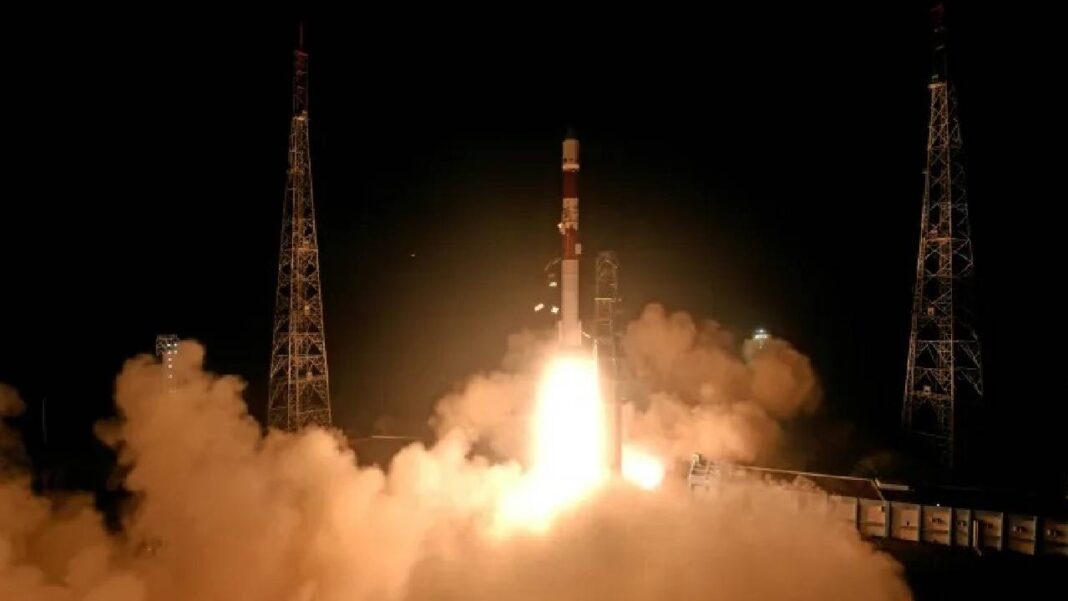PNS|Vijayawada
The Indian Space Research Organisation (ISRO) suffered a setback on Sunday after its PSLV-C61 mission failed to place the EOS-09 satellite into its intended orbit.
The launch took place from the Satish Dhawan Space Centre in Sriharikota and marked the 63rd flight of the Polar Satellite Launch Vehicle (PSLV) and the 27th in its XL configuration. The mission aimed to position the Earth observation satellite EOS-09 in a sun-synchronous polar orbit.
However, a critical anomaly occurred during flight. According to ISRO Chairman V Narayanan, the issue was traced to the third stage of the rocket, which uses a solid motor system. This stage is crucial in carrying the payload closer to its final orbit. Speaking during the live broadcast, Narayanan said, “The PSLV is a four-stage vehicle and up to the second stage, the performance was normal. The third stage motor started perfectly, but we observed a drop in chamber pressure, and the mission could not be accomplished. We are analysing the performance and will share updates soon.”
Failures in PSLV missions are uncommon. Since its debut in 1993, the launch vehicle has had only a few unsuccessful flights, typically due to propulsion or stage separation issues. Notable failures include its maiden flight, which suffered a loss of control during stage separation, and a 2017 mission where the payload fairing did not detach.
ISRO has set up a failure analysis committee to investigate the telemetry and flight data to determine the cause and implement necessary corrections. Despite this incident, the PSLV remains one of the most dependable launch vehicles globally, with a strong record of successful missions.




